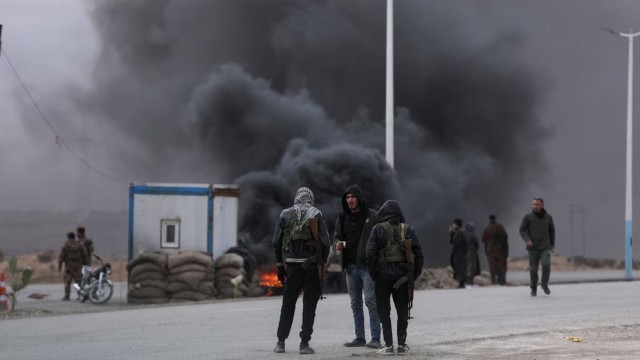Houston/London, July 21 (V7N) — Oil prices edged lower on Monday amid fresh European Union sanctions on Russian oil and looming U.S. tariffs on EU imports that threaten economic growth and dampen fuel demand.
By 11:08 a.m. EDT (1508 GMT), Brent crude futures had declined by $0.26 (0.4%) to $69.02 a barrel, while U.S. West Texas Intermediate (WTI) crude fell $0.24 (0.4%) to $67.10.
The EU's 18th sanctions package, announced Friday, places restrictions on India’s Nayara Energy—which processes Russian crude—but market analysts believe overall supply chains remain resilient. “Supply will still make it to market in one way, shape or another,” noted John Kilduff, partner at Again Capital in New York.
Kremlin spokesperson Dmitry Peskov highlighted that “Russia had built up a certain immunity to Western sanctions.”
However, the more impactful element may be the EU’s ban on imported refined products made from Russian crude in third-party countries—though enforcement of this penalty remains complex, according to analysts at ING.
Meanwhile, another oil-exporting nation, Iran, is preparing for nuclear negotiations in Istanbul, with potential for renewed Western sanctions if talks falter.
In the U.S., Baker Hughes reported a decline in operating oil rigs by two last week to 422—the lowest count since September 2021. “Oil‑focused drilling is expected to remain at subdued levels through the balance of the year,” said Alex Hodes of StoneX.
Looking ahead, U.S. tariffs on European imports, due to take effect August 1, pose additional risk to oil demand. “The U.S. tariffs are potentially negative for oil demand and economic activity,” warned Kilduff.
Still, any tightening in oil inventories could lend support to prices in the short term. IG market analyst Tony Sycamore suggested oil may stabilize within the $64 to $70 range, especially if supply data confirms constraints.
Brent crude has been trading between $66.34 and $71.53 since a ceasefire deal ended the recent Israel-Iran conflict on June 24.
END/WD/AJ/































Comment: